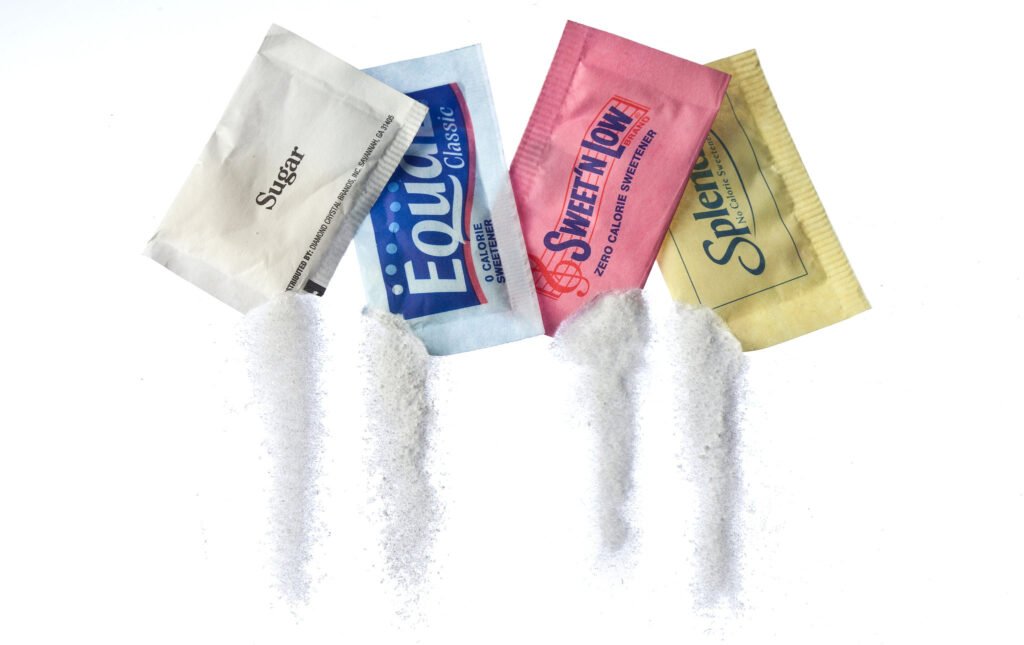
The Real Deal on Artificial Sweeteners
The Truth About Sugar Substitutes: Navigating the Sweetener Maze
Ever walked down the sweetener aisle and felt completely lost? You’re not alone. With so many sugar substitutes—both artificial and natural—it can be tricky to know which ones to choose. Misunderstandings are everywhere, often fueled by conflicting studies and recommendations from health authorities like the World Health Organization (WHO). Let’s take a closer look at the important issues surrounding non-sugar sweeteners (NSS), potential health risks, and why we need clearer labeling in our food products.
The Real Deal on Artificial Sweeteners
Many folks reach for artificial sweeteners like aspartame or sucralose, thinking they’re making a healthier choice than sugar. But recent research suggests otherwise. Using these sweeteners over the long run could lead to some serious health issues, including type 2 diabetes and heart problems. In fact, some studies even link their regular consumption to a higher risk of death overall.
Key Takeaways:
– What Research Says: Some studies have rung alarm bells about the long-term use of artificial sweeteners. A thorough analysis showed that people who use these sweeteners didn’t see the weight loss they hoped for; instead, they often craved even more sweetness, which can lead to eating more calories than planned.
– Proceed with Caution: Sure, artificial sweeteners are low in calories, but their long-term health effects might just outweigh the benefits. If you’re hoping to manage your weight, it’s smart to tread carefully. What seems like a harmless option could have surprising drawbacks.
Busting the Myth of Weight Loss
One popular belief is that artificial sweeteners help with weight loss. Many people think that choosing “diet” or “zero-calorie” drinks will help them shed pounds. But the reality is a bit different.
What You Should Know:
– Mixed Evidence: A growing number of studies indicate these sweeteners may not help you lose weight at all. Some even suggest they could contribute to weight gain! That’s surely frustrating for those trying to make healthier lifestyle choices.
– Think About This: A study published in the journal *Obesity* found that people who often drink artificially sweetened beverages tend to weigh more than those who choose natural options. Keeping this in mind can help you rethink your drink choices.
The Case for Clear Labeling
In today’s world, where we all want to be savvy consumers, the way food is labeled leaves much to be desired. Without clear information on the actual amounts of NSS in products, consumers often find themselves confused and end up consuming too much.
Why Better Labeling Matters:
– Your Right to Know: The FDA should enforce stricter labeling guidelines. It’s really important to know the exact quantities of non-sugar sweeteners in products, especially for those designed for kids. Parents need reliable information to make healthy choices for their families.
– Brands Can Lead the Way: Some companies are starting to improve their labeling practices, offering clearer insights into their products. This could set a positive example for others, underlining the need for transparency in food marketing.
Rethinking Dietary Recommendations
Given all this information, it’s clear we need to rethink our approach to dietary recommendations. Instead of relying on sugar substitutes, let’s try to cut back on sweeteners overall and focus more on whole foods.
Here’s What You Can Do:
1. Build Healthier Habits: Make a point to prioritize whole foods over processed ones. This will help you reconnect with your body’s natural preferences, steering you away from sweeteners.
2. Be Mindful of What You Eat: Ask yourself whether the “sugar-free” or “low-calorie” products you consume are really worth it. These items might come with hidden costs that go beyond just calories.
3. Get Professional Support: A conversation with a dietitian or nutritionist can be beneficial. They can help you create a balanced diet that reduces processed sugars and sweeteners tailored to your unique lifestyle.
Practical Steps for Change
Getting a grip on the risks and implications of sugar substitutes can set you on the path to better health. Here’s how to put this knowledge into action:
1. Stay Informed: Always read labels carefully and think critically about what you’re eating. If you’re unsure about a sweetener, do a bit of research or ask a professional.
2. Make Changes Gradually: If you rely heavily on sweeteners now, don’t rush to cut them out completely. Start by swapping sugary drinks for water or herbal teas. You might also find you like natural sweeteners, like honey or maple syrup, when used in moderation.
3. Choose Natural Foods: Load up your meals with more whole foods. Fresh fruits, vegetables, and whole grains provide nutrition and a natural sweetness without the associated risks of processed sweeteners.
Wrapping It Up
Diving into the sweetener world can be overwhelming, but with the right knowledge, you’ll be better equipped to make informed choices. Understanding the risks tied to artificial sweeteners, the myths surrounding their benefits, and calling for better product labeling gear us up for a healthier dietary journey.
So, what do you think? It’s time to take charge of your health! Share this article with friends and family to spread the word about making more informed decisions about what we eat. Together, let’s shift our focus from sweeteners back to whole foods and empower ourselves to live healthier, happier lives.
SEO Keywords:
Primary: sugar substitutes; Secondary: artificial sweeteners, health risks, non-sugar sweeteners, dietary recommendations.
For further reading, check out [related blog articles on healthy eating](#). If you have questions, drop your thoughts in the comments below. I’d love to hear about your experiences with sugar substitutes!
Written by Alexander Babinets
Founder of Express Fitness, certified coach, and author helping people get in shape without excuses.
📍 expressfitness.ca | 📩 info@expressfitness.ca
👤 More about me → alexanderbabinets.com
Hashtags: #sweeteners #sugar #about #artificial #health #what #substitutes #natural #labeling #their #weight #more #help #like #risks
